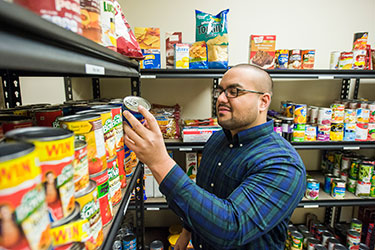recovering from negative religious or spiritual experiences

Kathryn had grown up in a small, non-denominational evangelical church, and treasured many of her memories of Sunday School, kind parishioners, and lessons about the love of Christ. But the older she got, the more she realized how much of what was heard from the pulpit on any given Sunday was infused with politics, particularly around hot-button issues like abortion and homosexuality. She’d come to her own convictions on these matters and was settled on what she thought, but every time she attempted to express these views in church circles, she was met with a barrage of one-liners from the Bible apparently contradicting her viewpoint, and at times, open hostility. She’d continued attending church there anyhow, but lately felt as though she had to drag herself out of bed on Sunday mornings. Where was the excitement and enthusiasm she’d had as a child?
David and his wife, Marie, were the proud parents of three children and a devout Catholics. It became clear a few years after the birth of their third child, Angelica, that she would have some special needs growing up. As Angelica neared kindergarten, she was officially diagnosed with a pervasive developmental disorder and thought to be somewhere on the Autism spectrum. While David and Marie felt well-supported by the local school system and its resources for helping in the educational setting, church was a different story. They became acutely aware that church children’s activities presented unique challenges for Angelica, who struggled to engage socially and who often cried from beginning to end. They’d attempted to address the need for extra support for their daughter with the teachers and volunteers, but were met mostly with shoulder shrugs. When David talked with his pastor about the situation, he was surprised to hear him say, half-way through the conversation, “You know David, if you need to go somewhere else for church, there won’t be any hard feelings.” The conversation ended abruptly and David went home feeling shell-shocked, and of course, deciding they had to leave the church. The disconnection and ostracization they felt on doing so was worse than the original offense. The whole experience shook them to their very core.
Suzanne’s parents were part of a very conservative and rigid church throughout her childhood and adolescence. As early as 15-years old, she knew that she’d take a different spiritual path when she came of age. Now, as an adult, she found her spiritual center each week by practicing yoga, reading inspirational books, and practicing meditation — she thought of herself as “spiritual, but not religious.” As of late she’d become interested in dialoguing about the overlaps between Christianity and Buddhism, based on her own journey and the reading she’d done rather extensively as a hobby. But anytime she tried to bring this up with friends from yoga, they looked at her like she was from outer space, and some went as far as to suggest the overlaps she saw were highly overstated. And in those moments, Suzanne felt a familiar old feeling — it was almost as though these folks were just as rigid and closed-minded as the ones she grew up with.

The Importance of Religious and Spiritual Life
While many people report they do just fine without any kind of connection to religious or spiritual life, a 2013 Gallup poll revealed that about 60% of Americans still report that it is “very important” to them. And yet, that same poll revealed that 76% believed religious and spiritual life was largely losing its influence on people.
In explaining this trend, one hypothesis is that so many people have suffered from negative religious or spiritual experiences. So much so, in fact, that they’ve felt it was necessary for their overall health to severely limit their involvement with religious or spiritual groups, or disengage from them altogether.
What Religion and Spirituality Attempt to Address
In a nutshell, religion and spirituality often attempt to address important questions in life. Among other questions, they address whether we are:
- Free or determined
- Rational or irrational
- Holistic or elemental
- Subjective or objective
- Proactive or reactive
- Dynamic or static
- Knowing or unknowing

The difficulty in addressing these important questions is that there are an inordinate amount of viewpoints to be thought through, many of which are seemingly contradictory. In a day and age where we can have most any question answered from us by entering a search query into Google, the sheer volume of information there is to ingest can be overwhelming. And when we’re overwhelmed, we look to charismatic and compelling people to help us find answers, rather than treasuring the journey and the questions themselves. As such, religious and spiritual endeavors are often replete with persons who think they have all the answers, and are all to eager to engage a group of followers who are looking for clarity and security.
If we’re not careful, this can result in what is known as the “true-believer syndrome,” a phenomenon where there is a “widespread ‘desire for change’ from discontented people who place their locus of control outside their power and who also have no confidence in existing culture or traditions.” Eager for someone to show us the way, we agree with the leaders and basic tenets of spiritual or religious movements, ignoring all of the cognitive dissonance and questions we have about their methods or beliefs, telling ourselves that what’s transpiring must be okay for one reason or another.
Many people are born into religious or spiritual systems like this — the churches and groups their parents were a part of become theirs by proxy. Still others seemingly stumble into these kinds of groups unawares. Over time, things begin to occur that they can no longer ignore, and when they try to bring them up, they find themselves intimated, shamed, or ostracized into silence. In short, leaving can be very difficult. If and when people finally emerge on the other end of a time period where they’ve been a part of a spiritual or religious group that required “true belief,” they feel (and usually were) abused, controlled, and traumatized.
The Fallout: Personal Disenchantment and Loss of Agency
Not everyone becomes a true believer, and not everyone has been a part of a religious or spiritual system that was oppressive or controlling to that extent. For example, many people have been a part of groups that seemingly had mostly good practices, but struggled to help operationalize those practices into any kind of personal spirituality that was meaningful. Still others have had mostly good experiences with religious or spiritual systems, but have suffered at the hands of individuals or groups within them, often when they expected that religious or spiritual persons they knew would react to their personal needs with the values they claimed to embrace such as love, compassion, or justice, only to find that religious or spiritual persons they once admired fail the real-life litmus test and are unable to meet the needs of those around them.
But even these less intensely negative religious or spiritual experiences have negative consequences for those who’ve suffered through them, leading them in time to feel lost, disenchanted, and personally limited in their ability to move on. They often enact the age-old “definition of insanity” — doing the same thing over and over again expecting different results. That is, they return over and over to the same religious or spiritual groups or people, mistakenly believing that things will be different this time.

- Confusion
- Loss of pleasure or interest in religious or spiritual activities that were once life-giving
- Loss of pleasure or interest in other activities
- Feelings of depression
- Feelings of abandonment
- Misbelief that you could’ve somehow prevented you’re current situation if you’d just had more faith, been more patient, etc.
- Feelings of disconnection from God or spiritual practice
- Fear
- Feelings of loneliness
- Confusion (did we say that already?)
Warning Signs of Spiritual Abuse or Religious Abuse
Some of the wrongdoings people suffer at the hands of religious or spiritual systems/people are severe to the extent that the term “negative experience” fails to address the magnitude of injury. In these cases, often the injury legitimately qualifies as abuse. Here are some warning signs that you may be in a spiritually or religiously abusive situation:
- No room for differences of opinion on convictions
- Questions regarding beliefs or practices are regarded as questions of authority
- “Black and white” or “All or nothing” thinking
- Institutionalized inequality against women, persons of color, LGBTQ persons. Example: Women must dress a certain way, cannot hold certain leadership positions, are regarded as objects of male domination, sexuality, etc.
- Hostility toward and withdrawal from “outsiders.” Demands that more and more time be spent with religious or spiritual group members only
- Perfectionism
- Contradictory values and actions — saying one thing but doing something else. Also usually includes misleading language — mislabeling “workaholism” as “commitment,” or “denial/blind-following” as “faith”
- Any signs of dissent or confusion are labeled as sinful or otherwise unacceptable
- Mental health issues (anxiety, depression, etc.) or physical health issues are denied or regarded as sinful or “your fault”
- Primary tools for guiding religious and spiritual seekers are fear and shame
- Sexual, physical, emotional, or verbal abuse from leaders is openly condoned or ignored

Answer: No!
People who’ve been through religious or spiritual negativity or abuse are often understandably reluctant to seek help. After all, the very nature of what they’ve been through has taught them that seeking help is likely only to produce further suffering.
But Change, Inc. St. Louis counseling for religious abuse or negative spiritual experiences is distinctly client-centered and non-judgmental. We have no agenda, and we understand you’ll need us to be there to support you with candor, compassion, and patience. This means we recognize that it is okay for people not to go to church or spiritual communities. And likewise, we recognize that some people will want to re-engage them. We’ll do our best to help you get where you want to go.
Is There Any Hope?
One of the most difficult things to believe for those who’ve suffered through negative religious or spiritual experiences or religious or spiritual abuse is that there is a way out, or that they can recover. But indeed, many people have recovered and you can too! Here are some steps you can take immediately to begin the journey:
1. Recognize that this is going to take time. Most people suffering from negative or abusive religious or spiritual experiences invested the deepest parts of themselves and exorbitant amounts of time, energy, and/or money with the religious/spiritual groups that injured them. In other words, you didn’t find yourself in a position of religious or spiritual negativity or abusiveness over-night, and you won’t recover that quickly either. Be patient with yourself and the process. We recognize you’ve heard those words used to misguide you in the past, but the best counterfeits are such because they contain some truth. Slow down. Give time time.
2. Become more aware of our own rigidity, fear, and shame. One of the most vexing facets of recovering from religious or spiritual injury is the notion that rigidity — “black and white” or “all or nothing” thinking — is part and parcel related to your original struggle. In moving toward healing, we strive to become more aware of when we are becoming equally rigid about the healing process. In other words, the road to healing isn’t paved with “must’s,” “should’s,” or “have to’s.” Or rather, it can be, but it won’t look much like healing. Instead, we strive to allow ourselves to experience all of the grief, anguish, pain, and eventually, freedom that comes with living a life that is profoundly different than what we might’ve envisioned for ourselves spiritually or religiously, but is nonetheless the only life we have. And when we catch ourselves falling victim to rigid thinking or behavior, we don’t chastise ourselves with fear and shame. Fear and shame aren’t tools of correction and growth, but control.
3. Know this — things are going to be different. It’s possible that some of us who’ve experienced religious and spiritual negativity or abuse may never go back to church, synagogue, mosque, ashram, meditation group, yoga practice, etc. This is reality. And yet, some of us will be able to return to some form of religious or spirituality community. Whatever the case, things are going to be different. Religious or spiritual negativity and abuse profoundly change who we are. The differences we see in ourselves now need not threaten us, in spite of all we’ve been told to the contrary. In fact, one way you know you’re beginning to heal is when you start to recognize that you like who you are now, including the wounds, scars, and memories you have from your religious and spiritual experiences. After all, they’re part of what makes you you.
Need some guidance with all of these? We can help!
Our therapists aren’t just expert counselors – they’re agents of change! They can help you find a path of recovery from negative or abusive religious or spiritual experiences, free of judgment, and full of hope.
Looking for help coping with negative religious experiences, or counseling for religious or spiritual abuse in St. Louis?
Message Us at contact@changeincorporated.org
Or use the form below — there’s no pressure.
Call Us
(314) 669-6242
ST. LOUIS COunseling Locations
NOW IN ONE EXPANDED & IMPROVED LOCATION TO SERVE YOU BETTER!
Change, Inc. South Hampton & 44:
3460 Hampton Avenue, Suite 204
St. Louis, MO 63139
PHONE/EMAIL HOURS:
Monday through Friday // 9a to 3p
Saturday // 12p to 3p
Contacts received before 3pm:
- returned the same business day
Contacts received after 3pm or on the Sundays:
- returned the next business day
314-669-6242 / 877-5-CHANGE (524-2643)
contact@changeincorporated.org
COUNSELING HOURS
7 DAYS PER WEEK:
10am to 9pm
